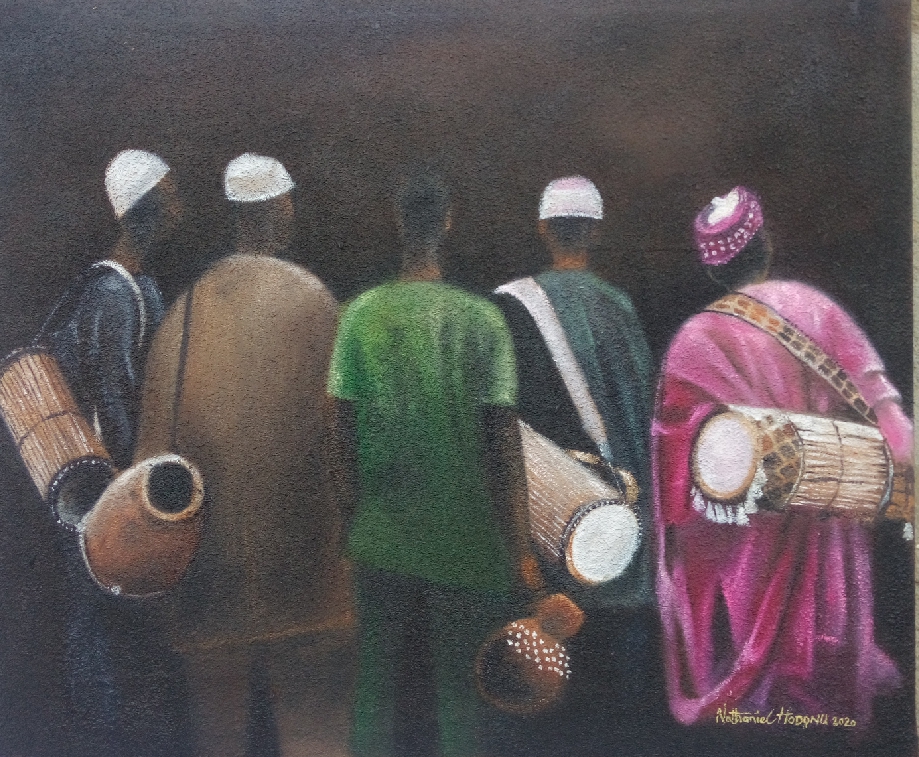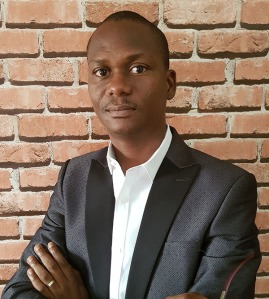Marriage of beauty and the beast in Aiyeko-Ooto’s ‘The Night Before Dawn’
By Anote Ajeluorou
AIYEKO-OOTO’s ‘The Night Before Dawn’ (3P Financial network Corporation, US; 2021) reminds so much about Mbella Sonne Dipoko’s title for his love poems, ‘Black and White in Love’, not so much for the content of the poems but the context of their creation: a continent battling to come to terms with its colonial power and past and what the future holds for her. Both in literal and metaphorical terms, the marriage is never even or equal and the couple never live happily ever after in this turbulent union.

Africa may have severed political ties with Europe, but it still has its economic umbilical cord tied to her former masters. And what passes for Africa’s failure today still has resonance in her past lifetime’s bitter love affair with Europe. What then is the quality of this love affair whose invisible strings still hold both continents fast? Why is it taking so long for there to be a balance of power in their relationships?
These are some questions the author of ‘The Night Before Dawn’, which he calls ‘Novella Dramedy: Screen Play’, has posed to his audience-readers. How long will it take Africa to shake off her unequal status with the west and begin to live out its own reality and destiny?
Centred around a couple, a Nigerian man Dr. Adeleke Owokotomo who would rather be Julius so he can blend into British society and his British wife, Elizabeth, the author, Aiyeko Ooto, also Cash Onadele, puts into one neat narrative temper the unequal relationship between Africa and Europe and why Africa still grovels before her past colonial masters decades after independence.
In Elizabeth’s relationship with her husband could be glimpsed the sly European mind that is always hatching schemes how to undermine her former colonial ’empire’ in modern-day terms that would continue to make Africa a subservient continent. Meanwhile, Julius, a medical doctor recognised and rewarded in British society for his brilliance, is contented with his achievements where he is, even though he wishes to return to Nigeria to practise, and actually nurses such plans to relocate back home. We encounter the couple at the height of Julius’ medical genius when he is to receive yet another award for his exceptional work in invitro fertilisation technique, but his wife has just made a startling discovery: Julius, her husband of 20 years, has sired a child out of her marriage with a Nigerian woman! Elizabeth has failed in that department and so he needs to save his line from extinction.
But the sly British that Elizabeth is, a brilliant historian and journalist, she does not go direct. Through her knowledge of history about what her ancestors did to Julius’ ancestors and what her people are still doing to milk Africa of her wealth that they readily sign off since they seem bereft of brains how to put her resources to better use; Elizabeth reminds Julius how faraway from development his country is. This is moreso from the way the country is being badly run while her own people make sure development will always spring from Europe. But Julius pushes back, reminding his wife that whatever woe is befalling his people is because of the wrong, deceptive structures her ancestors erected in Africa to ensure she never succeeds. But he is certain that the setback will only be for a short time before his continent comes to terms with the duplicity of Elizabeth’s people and change the narrative.
Indeed, it is back and forth between husband and wife, as they interprete the complex and duplicious relationship between Europe and Africa. In fact, the reality of their marriage is somewhat akin to that between Europe and Africa which both represent, as they seem to be the best examples of each continent: the one trusting and believing a better future, the other already having rigged the relationship in her favour, and firmly having a grip of things. Indeed, Julius would have found it hard to climb to his current social ladder if Elizabeth had not come to Nigeria, fall in love with him and give him a chance to put his brain to best use in Britain. But in doing so, Elizabeth expected a certain level of fidelity which Julius can only keep to the point when Elizabeth fails to give him a child and then he is forced to stray. She trails him with a hired hand until she discovers her husband’s love child and then things begin to unravel quickly in an evening when Julius attains his greatest height in medical practice in British society.
In spite of her startling revelations about the duplicity of her people, at the heart of Elizabeth’s argument is uncommon truism: that Africa and Africans are the continent’s own development challenge. While Europe may have a hand in Africa’s past and current woes, what exactly has Africa done differently to advance her development when corruption is rife across board? It is for this reason that well-intentioned professionals like Julius will continue to drift to and remain in Europe even when their services are needed back home more than where they currently practise. What structures are there for them to practise back home that corruption will not scuttle?
Africans never believing in the effectiveness or efficacy of what Africa has is perhaps the best way to describe the argument between husband and wife. On a visit to Nigeria, Elizabeth had bought the local ‘weed’ and taken it with her which she ocassionally smokes. On a night of their heated debate, Julius takes a stick and smokes. But he soon realises it’s not the normal cigarrette and is disgusted, but his wife reminds him of the medicinal benefits of what is in abundance in his country which he is eager to shun. It’s a pervasive syndrome to reject what’s local for the foreign, like young Africans patronising the Premiership or European football leagues while shunning local footbal clubs.
Indeed, it’s the hope of the author and everyone who means well for Africa, that in fact, deriving from the title, the long night seems too far drawn for Africa and that dawn should quickly arrive for the continent to emerge from the dark night it has willingly submitted itself. ‘The Night Befeore Dawn’ is certainly Aiyeko-Ooto’s manifesto for a continent’s recovery from its centuries of failures, both internally and externally inflicted. Through Elizabeth’s vernom at being rejected by her husband who opts for another woman and child, the author delivers hard punches strong enough to jolt a continent from its perennial stupor. This is intense ‘dramedy’ call for today’s Africa and its reawakening.



